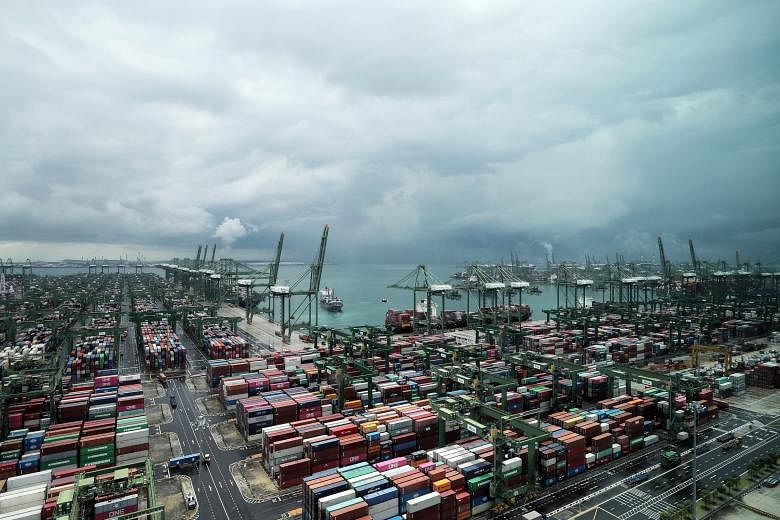SINGAPORE - Free trade agreements (FTAs) are important in helping businesses lower their costs and explore new markets and models, a need that has been made even more urgent by the Covid-19 pandemic, said Nominated MP Janet Ang on Tuesday (July 6).
She was responding in Parliament to two ministerial statements on FTAs and foreign manpower.
Ms Ang, who is also a council member of the Singapore Business Federation (SBF), said: "Trade along with investments into Singapore will drive our economic recovery and the resumption of business activities post-Covid-19 even as we restlessly reinvent our industries, innovate ideas, products, services and business models, to emerge stronger post-pandemic."
In fact, despite the pandemic, Singapore's total services trade exports in 2020 amounted to $259 billion, with China, the United States, the European Union and Malaysia as the top trading partners.
She added: "As a small and open economy without natural resources, Singapore is highly dependent on international trade and highly integrated, well-functioning global value chains.
"International trade not only provides us with the products that we import and consume, but also connects us to the global market that supports our businesses and sustains our economy, creating the good jobs that Singaporeans have enjoyed in the past and aspire to for the future."
Firms also stand to benefit from FTAs, with businesses gaining preferential market access to major trading partners, while enjoying lowered entry barriers for the export of goods and services.
These agreements also help to protect their investments in other countries.
"This strong FTA network can be a tool for businesses, not only in reducing their costs and time-to-market, but also in ensuring a predictable trading environment," she said.
FTAs have become even more relevant during the pandemic, she added, as firms realise the urgent need to build resilience in their business models and supply chains.
This is done partly by exploring new markets and supply sources, she said.
"I would dare say that because our Singapore businesses remain very much plugged into our FTA network, we have been able to ride the storm of Covid-19 a little better than if we were disconnected."
Besides affecting supply chains, the pandemic also accelerated digital transformation, making Singapore's digital economy agreements with countries such as Chile and Australia even more vital in giving firms a leg up in that area, Ms Ang said.
"Singapore businesses cannot afford to take a wait-and-see approach... Across industries, developing the DNA to tap overseas markets and to trade with multilateral partners is critical for businesses to be successful, given Singapore's limited domestic market," she added.
SBF chief executive Lam Yi Young said in a statement that businesses value Singapore's extensive network of FTAs, which are critical in facilitating trade and business growth.
He added that foreign manpower is also an integral part of Singapore's workforce, and the majority of firms are committed to recruiting fairly.
"We must also not forget the reality that the size of the Singaporean workforce is limited and that our workforce is ageing. We do not have enough Singaporeans to meet the needs of our economy and businesses here," he said.
"Foreign manpower helps to fill this gap and augment our Singapore core. Having access to sufficient manpower and talent is crucial to the success of Singapore businesses."
Mr Lam also said that foreign manpower can help to fill essential jobs that are not attractive to Singaporeans.
On the other end of the spectrum, they also help to bridge critical skills gaps in high-skill areas such as digital technology, advanced manufacturing, and cutting-edge research.
"Even as businesses remain pro-Singaporean and consider Singaporeans first for their hiring needs, we cannot afford to be anti-foreigner or to artificially limit jobs to Singaporeans only," he added.
"If businesses are not able to meet their skills and manpower needs here, they will shift their operations out of Singapore, and this will in turn lead to loss of job opportunities for Singaporeans."


